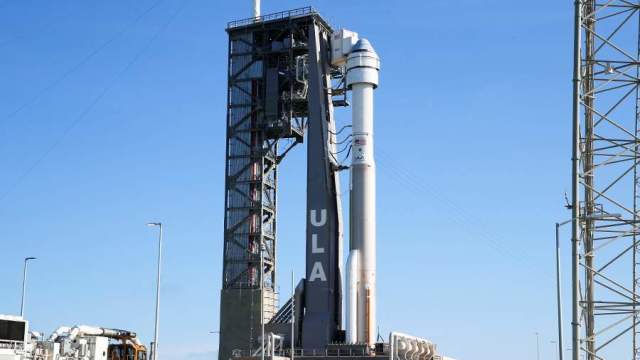The Atlas 5 launch vehicle with the CST-100 Starliner of the Boeing Corporation, which was supposed to go to the International Space Station (ISS), was taken away from the launch pad at the Cape Canaveral cosmodrome in Florida due to adverse weather conditions. This was announced on July 30 by the carrier developer company United Launch Alliance (ULA).
"To protect the Starliner and Atlas 5 from inclement weather, we took them back to the vertical assembly shop," the company said on Twitter.
NASA also reported that the Starliner and Atlas 5 are "safe", and noted that the ship is ready to perform the second test orbital flight of the Boeing spacecraft. It is expected that the nearest launch opportunity will appear on August 3 at 13: 20 East Coast time (20: 20 Moscow time), the space agency noted.
Earlier, NASA reported that the second test flight in the unmanned mode of the Starliner spacecraft was postponed due to the incident on July 29 with the Russian Nauka module during docking with the station. The ministry indicated that the launch was postponed to give the ISS crew members time to check the operation of the newly arrived module, as well as to prepare for the arrival of the Starliner.
Meanwhile, a source in the space industry said that the launch of the Starliner to the ISS was postponed due to unavailability for launch, and not an incident with the Nauka module.
As Dmitry Rogozin, the head of Roscosmos, commented on the postponement of the Starliner launch, the American side really should not have been in a hurry.
"If I were in their place, I would also endure it. Why did they put their launch butt-to-butt to our docking? It was unwise on their part from the very beginning, because the new module flew, we need to calmly adapt it, " he told Komsomolskaya Pravda radio.
The docking of the American ship with the ISS is scheduled for August 4. During the first test flight of the spacecraft on December 20, 2019, it failed to dock with the ISS.
After docking with the ISS on July 29, the Nauka module unplanned the engines, as a result, the station lost its orientation and changed its altitude. Roscosmos commented on the incident, specifying that the work on transferring the module from flight mode to the "docked with the ISS" mode continues. According to the head of the flight of the Russian segment of the International Space Station (ISS), Vladimir Solovyov, due to a short-term software failure, a direct command was mistakenly implemented to turn on the module's engines for withdrawal, which led to some modification of the orientation of the complex.

